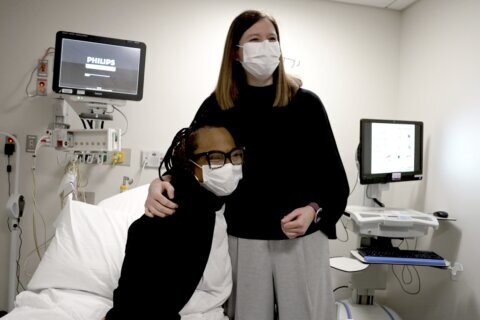Cleaning used to be so simple. Do you have a broom and dustpan? Of course. A mop and bucket? Check. A vacuum cleaner? Check. An air filtration system?
Probably not. But perhaps you’re thinking about it.
In this age of COVID-19, a lot of people are likely wondering if they should buy something to help sanitize the air in their home. Given that an air filtration system is more expensive than purchasing rags and a feather duster, we’ll give you the lowdown on what you may want to consider before buying one.
[See: 35 Ways to Save Money.]
The Cost
It’s virtually impossible to nail down a universal cost for an air filtration system. After all, are you buying one for an entire house? An apartment? A dorm room? As you would expect, the more air you need to clean, the more expensive the system. You can buy air filtration systems for about $100 or less; you can buy them for several thousand dollars.
Keep in mind that once you buy an air filtration system, you’ll also be spending money on the filters, which you’ll likely want to replace every six to 12 months.
It really depends on usage, says David Osland, director of product management and marketing at Pinnacle Climate Technologies, which makes the Remington Airetrex 365 Air Sanitizer, which primarily works with ultraviolet light technology.
“When the filter is visibly covered in dust or air flow is impeded, it should be replaced,” Osland says.
So before you buy any air filtration system, check and see how much the filters cost. They might be as low as $20 per filter, but $50 to $80 and even higher is common.
Your electric bill will also go up if you’re going to run an air filtration system day and night.
Types of Purifiers, Sanitizers and Filtration Systems
There is an overwhelming amount of products on the market, with a lot of different types of filters. Here are the main air filtration systems that you’ll find:
— Mechanical filters. These filters are made of fine mesh and are HEPA filters. HEPA stands for high efficiency particulate air, as officially defined by the U.S. Department of Energy. Of course, you’re wondering: Are these good filters, and can they protect me from the coronavirus? They are considered very efficient filters that will likely capture airborne COVID-19 particles. But if somebody comes into your home as a COVID-19 carrier and breathes on or around you or worse, sneezes on you, it isn’t as if your air filtration system will necessarily automatically zap the particles before they land on you.
— Activated carbon filters. Instead of capturing particles in the air, these filters absorb molecules. The big difference between activated carbon filters and mechanical filters is that if your dog releases an odor, the system with the activated carbon filter will be able to get rid of that. The air filtration systems with mechanical filter can’t.
— Ultraviolet germicidal irradiation (UVGI). These kill airborne viruses, bacteria and fungal spores with ultraviolet light. Ultraviolet germicidal irradiation generally has a good reputation for cleaning air.
— Ozone generators. These devices can get rid of pollutants in the air, but they also create ozone, which isn’t something you want to breathe. You’re likely better off not getting one. The language on the Environmental Protection Agency’s website comes across, without directly saying so, as though it hopes you steer clear. Its website says, in part, “Ozone generators that are sold as air cleaners intentionally produce the gas ozone. Often the vendors of ozone generators make statements and distribute material that lead the public to believe that these devices are always safe and effective in controlling indoor air pollution. For almost a century, health professionals have refuted these claims.”
— Electronic air purifiers. They can do the job when it comes to getting dangerous particles in the air, but they can also create ozone, so you’re probably better off without one. Osland points out that ozone can create “respiratory issues if inhaled,” so it’s probably not something to get if you have a child with asthma.
— Photocatalytic oxidation (PCO). PCOs use ultraviolent radiation and a photocatalyst, which is a material that absorbs light. Gaseous pollutants are then oxidized. Depending on what’s oxidized, these filters can create ozone and other not-so-fun things to breathe such as carbon monoxide. You’ll likely want to pass.
So if you’re going to get an air filtration system, you probably want to steer toward those that feature mechanical filters, activated carbon filters or ultraviolet germicidal irradiation.
[Read: 8 Budget Types for Businesses.]
What to Consider Before Buying an Air Filtration System
Check the MERV classification. Chris Koehner, owner of Halo Heating & Cooling in Nashville, Tennessee, says the most common filters have a MERV rating. MERV stands for minimum efficiency reporting value.
The rating goes from one to 20, Koehner says, and “most common filters have a MERV rating of seven through 12. They filter out smoke, mold spores, pollen, dust and pet dander. MERV 13 can trap viruses and bacteria.”
So if you’re looking for something to capture COVID-19 particles, there are no guarantees, of course, but you’d want to look for something with at least a MERV 13.
“Filters rated 16 through 20 are used in hospitals and clean rooms,” Koehner says.
Koehner recommends getting something with a HEPA filter. “A HEPA filter has a 17 through 20 MERV rating. A HEPA filter can capture airborne germs. HEPA removes 99.97% of all airborne particles,” he says.
You may want to bring in a professional. Naturally, the professionals think this is a good idea. Still, if you’re going to change the air quality in your home as opposed to just one room, it does make sense. There are so many different types of air filtration systems that it can be overwhelming to pick one if you haven’t done a lot of research.
A licensed contractor with experience in indoor air quality is what you’re looking for, says Bryan Buckley, brand manager at One Hour Heating & Air Conditioning.
He says a contractor will perform an audit on your home to determine a recommended solution.
That said, Buckley says, “The best air filtration system will always include an air cleaning filter in conjunction with a UV light mounted in the ductwork that renders mold, germs and viruses sterile, so they can no longer reproduce and spread throughout the home.”
And Buckley is a big proponent of having a HEPA filter, or one that works in a similar way. “If the unit does not have HEPA level filtration capabilities, most of the microscopic germs and viruses will not be captured and will just be blown around the home,” he says.
Many air filtration systems use smart technology. With some systems, you can check on your phone to see when a filter needs to be changed or get details on how healthy or unhealthy the air in your home is.
[READ: How to Save $1 Million.]
Bottom Line: What Air Filtration Systems Can and Can’t Do
Many air filtration systems will make your air cleaner and more breathable. If you’re looking to get rid of pet smells, cigarette smoke or make a room more hospitable for a family member with asthma, for instance, you can make a solid argument that you should buy an air filtration system.
If you’re trying to protect yourself from COVID-19, as long as you stay away from the ones that generate ozone or carbon monoxide, it can’t hurt to get an air filtration system — but it may not help.
More from U.S. News
How Investing Can Boost Your Emergency Savings
9 Secrets to Save Money on a Shoestring Budget
How to Buy an Air Filtration System originally appeared on usnews.com









